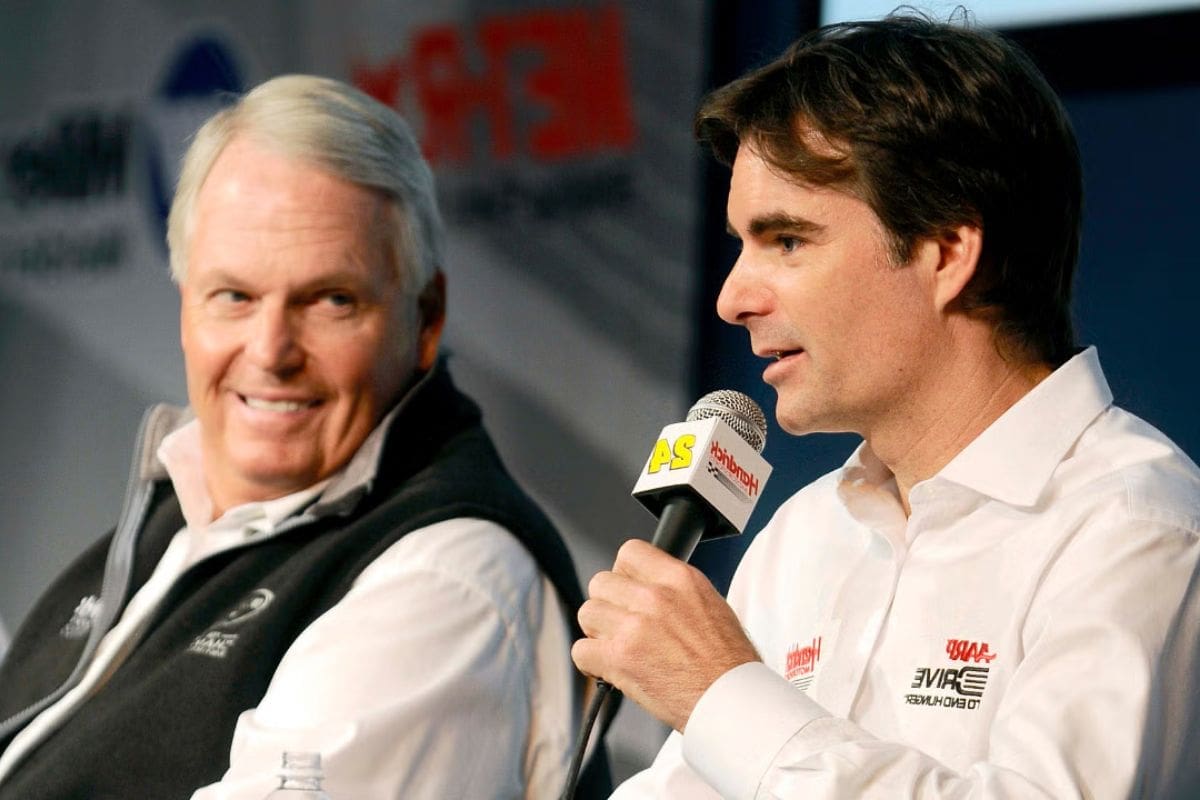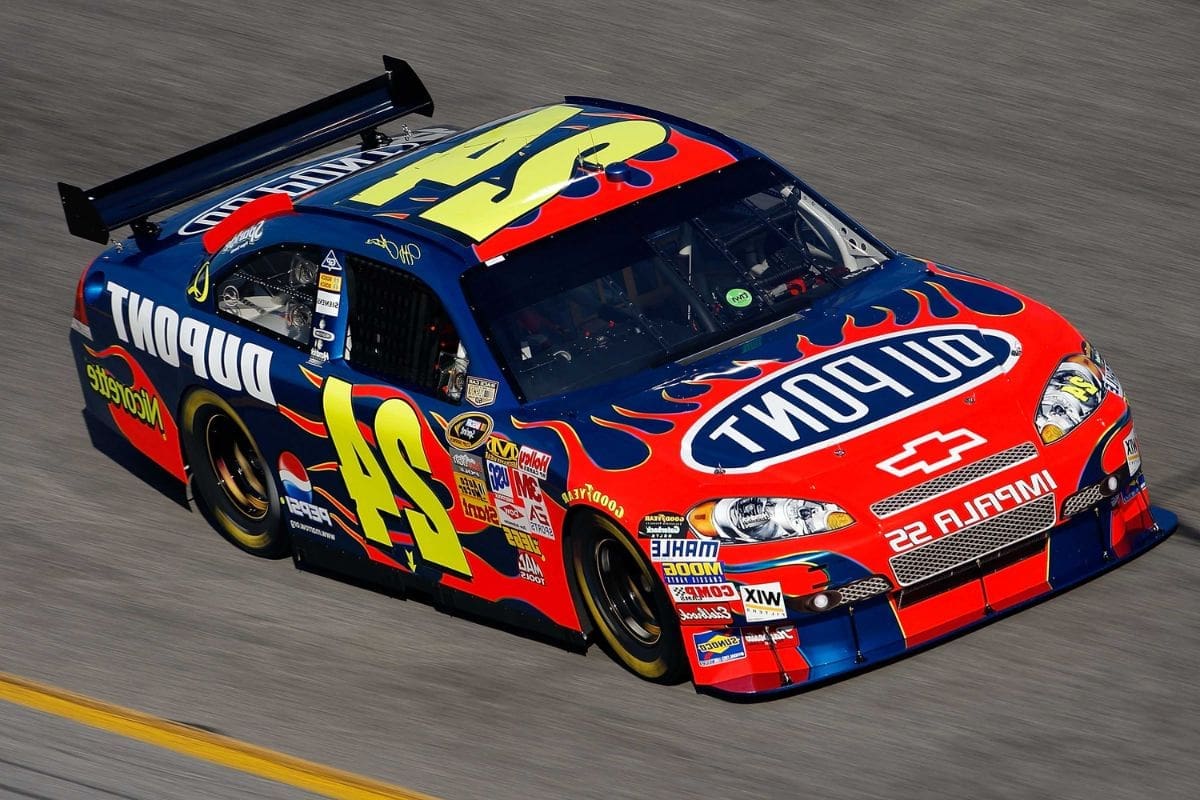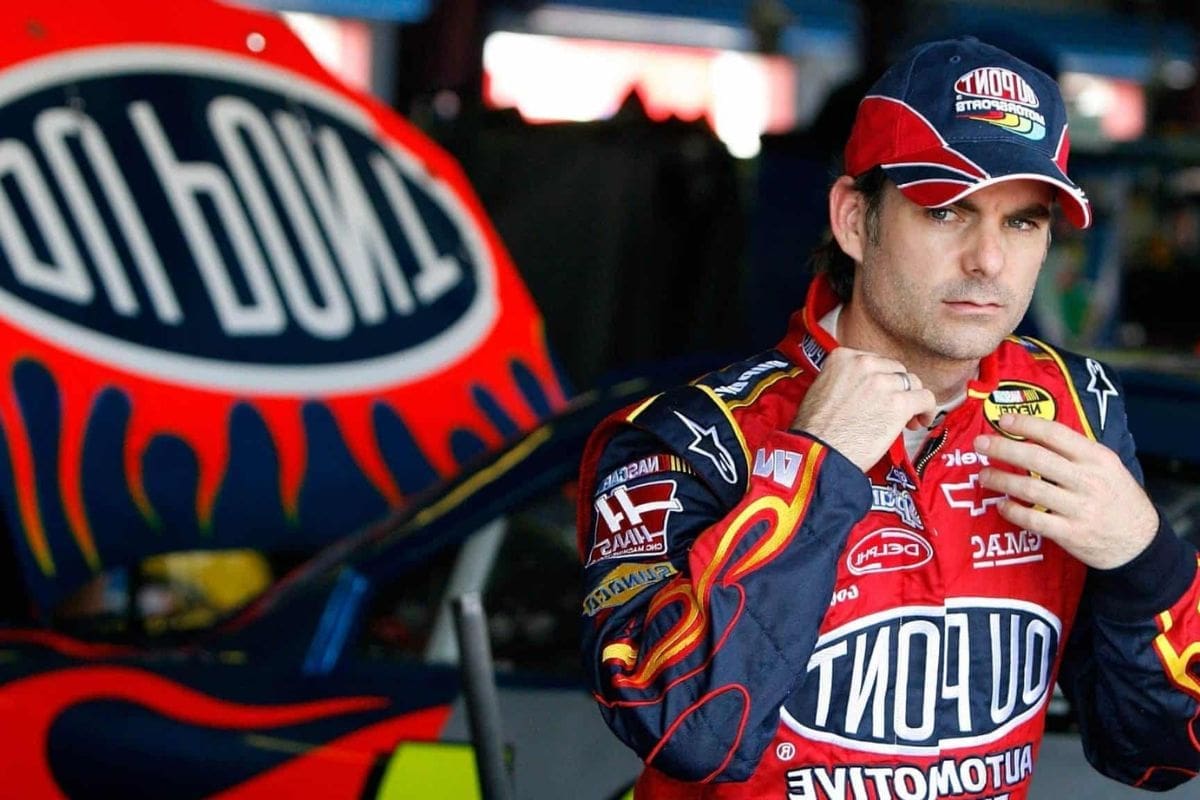Rick Hendrick’s Bold Move: In a recent interview, renowned NASCAR driver Jeff Gordon shed light on a bold move made by Rick Hendrick that could potentially rescue the struggling sport. The discussion centered around the stalled charter negotiation agreement, highlighting Hendrick’s instrumental role and the sacrifices he has made.
As NASCAR teams continue to face unprecedented challenges, Gordon draws intriguing parallels with the success of Formula 1.
With that said, what exactly did Hendrick do to breathe new life into NASCAR? What is the path forward for the sport’s success? Prepare to be captivated by the details that follow.
Key Takeaways
- Rick Hendrick’s strategic decisions and financial sacrifices have played a crucial role in rescuing NASCAR.
- NASCAR’s path to success lies in strategic collaboration, equitable revenue distribution, and embracing sustainable practices.
- Drawing inspiration from Formula 1, NASCAR can learn from their revenue-sharing model and focus on sustainable team operations.
- To ensure growth and sustainability, NASCAR needs to implement sustainable technologies, expand internationally, and collaborate closely with teams and stakeholders.
The Stalled Charter Negotiation Agreement
The NASCAR Cup season of 2024 is marred by uncertainty as the stalled charter negotiation agreement casts a shadow over the highly anticipated Daytona 500, leaving teams and fans anxiously awaiting updates on this pivotal deal that could reshape the future of the sport. This agreement has far-reaching implications for team dynamics, financial stability, sponsorship impact, competitive balance, and fan reactions.
Firstly, the stalled charter negotiation agreement disrupts team dynamics as uncertainty looms over the future of their charters. Teams rely on these charters for guaranteed entry into races, and any potential changes to the system could lead to a reshuffling of teams and drivers, affecting the overall structure of the sport.
Financial implications also come into play as teams and owners face an uncertain landscape. The charter system provides a level of stability, enabling teams to secure sponsors and make long-term plans. The uncertainty surrounding the charter negotiation agreement could impact sponsorship deals, potentially leading to financial instability for some teams.
Moreover, the sponsorship impact cannot be overlooked. Sponsors invest heavily in NASCAR to gain exposure and promote their brands. However, the uncertainty surrounding the charter negotiation agreement may cause sponsors to hesitate, leading to a decrease in sponsorship deals and potentially affecting the financial viability of teams.
Additionally, the competitive balance within NASCAR could be affected by the stalled charter negotiation agreement. The current system aims to level the playing field, ensuring fair competition among teams. Any changes to this system may disrupt this balance, potentially favoring certain teams and disadvantaging others.
Lastly, fan reactions are an essential factor to consider. NASCAR fans are passionate and invested in the sport. Uncertainty surrounding the charter negotiation agreement may cause anxiety and concern among fans, who are eager to see the sport thrive and continue to provide exciting racing action.
Rick Hendrick’s Role and Sacrifices
Rick Hendrick, the esteemed team owner of Hendrick Motorsports, has played a pivotal role in the NASCAR community through his unwavering dedication and sacrifices during the challenging times of the stalled charter negotiation agreement. Hendrick’s commitment to the sport and his team has been evident in various ways, including his financial sacrifices, team loyalty, leadership qualities, and strategic decisions.
| Hendrick’s Commitment | Financial Sacrifices | Team Loyalty | Leadership Qualities |
|---|---|---|---|
| Despite financial challenges, Hendrick has remained committed to NASCAR and has continued to invest in his team, Hendrick Motorsports. | Hendrick has made significant financial sacrifices to ensure the sustainability of his team and the sport as a whole. | Hendrick’s loyalty to his team is evident in his unwavering support and dedication to their success. | Hendrick’s leadership qualities have been instrumental in navigating the challenges faced by NASCAR teams, making tough decisions, and guiding his team to victory. |
Hendrick’s strategic decisions have also played a crucial role in the sport’s development. He has consistently made astute choices in terms of team composition, driver selection, and resource allocation, ensuring that Hendrick Motorsports remains competitive on the track. His ability to adapt to changing circumstances and his forward-thinking approach have cemented his reputation as a shrewd and visionary team owner.
Rick Hendrick’s role in the NASCAR community cannot be overstated. His unwavering commitment, financial sacrifices, team loyalty, leadership qualities, and strategic decisions have not only helped his own team but have also contributed to the overall growth and success of the sport. Despite the challenges faced during the stalled charter negotiation agreement, Hendrick’s dedication and sacrifices have been instrumental in keeping NASCAR alive and thriving.
Challenges Faced by NASCAR Teams
Amidst a changing sports landscape, NASCAR teams, including Hendrick Motorsports, are grappling with sustainability concerns that pose significant challenges to their profitability and viability. One of the main challenges faced by these teams is sponsorship struggles. As the sport evolves, securing sponsorships has become more difficult, leading to financial pressures on the teams. In order to remain competitive, NASCAR teams have had to develop sustainability initiatives to attract potential sponsors. These initiatives include implementing environmentally friendly practices and promoting social responsibility. By aligning their values with those of potential sponsors, teams aim to establish long-term partnerships that can withstand the evolving competitive landscape.
Furthermore, NASCAR teams have had to adapt their marketing strategies to stand out in a crowded marketplace. With the rise of digital media and changing consumer preferences, traditional marketing methods no longer suffice. Teams now utilize social media platforms, content marketing, and experiential marketing to engage with fans and attract new sponsors. By creating unique and memorable experiences, teams hope to differentiate themselves from their competitors and attract the attention of potential sponsors.
Drawing Parallels with Formula 1
Drawing parallels with the successful financial ecosystem of Formula 1, NASCAR legend Jeff Gordon highlights the potential for revitalizing the sport by adopting a sustainable approach to team operations. Gordon emphasizes the importance of sustainable growth and revenue sharing, taking inspiration from Formula 1’s collaborative approach to achieve success. He suggests that NASCAR can learn valuable lessons from the financial ecosystem of Formula 1, which has proven to be a model for long-term success.
In Formula 1, teams operate on a revenue-sharing model, where the income generated by the sport is distributed among the teams, ensuring a fair and equitable distribution of resources. This approach promotes a level playing field and allows teams to invest in their operations, leading to increased competitiveness. By implementing a similar revenue-sharing system, NASCAR can encourage team collaboration and foster healthy competition.
Moreover, Gordon emphasizes the need for a sustainable approach to team operations. Formula 1 teams have adopted innovative strategies to reduce their environmental impact and operate more efficiently. By embracing sustainable practices, NASCAR can not only enhance its public image but also reduce costs and improve the overall financial health of the sport.
Path Forward for NASCAR’s Success
To ensure the long-term success of NASCAR, it is crucial for the sport to adopt a strategic and collaborative approach that prioritizes equitable revenue distribution and embraces sustainable practices. NASCAR must recognize the importance of fair revenue distribution among teams to create a level playing field and maintain competitiveness. By ensuring that teams have access to adequate financial resources, NASCAR can promote healthy competition and attract new talent.
In addition to revenue distribution, NASCAR needs to place a strong emphasis on sustainability. As the world becomes more environmentally conscious, it is essential for the sport to align itself with sustainable practices. This can include implementing technologies that reduce carbon emissions, promoting recycling and waste management, and exploring alternative energy sources. By adopting a sustainability focus, NASCAR can position itself as a responsible and forward-thinking organization, attracting fans and sponsors who share these values.
Furthermore, NASCAR should develop a comprehensive growth strategy that takes into account the changing landscape of motorsports. This strategy should include initiatives to expand the sport’s reach internationally, engage younger audiences through digital platforms, and diversify its fan base. By investing in marketing, technology, and innovation, NASCAR can ensure its continued relevance in the racing world.
To achieve these goals, collaboration efforts are crucial. NASCAR should work closely with teams, sponsors, and other stakeholders to develop and implement strategies that benefit everyone involved. By fostering a culture of collaboration, NASCAR can create a positive and supportive ecosystem that drives the sport forward.
Conclusion Of Rick Hendrick’s Bold Move
Rick Hendrick’s bold move to rescue NASCAR through the stalled charter negotiation agreement highlights his commitment and dedication to the sport.
Despite facing numerous challenges, Hendrick’s sacrifices and strategic decisions have paved the way for NASCAR’s success.
By drawing parallels with Formula 1 and addressing the challenges faced by NASCAR teams, Hendrick has taken the necessary steps to ensure the future prosperity of the sport.
Our Reader’s Queries
Q. Does Jeff Gordon own part of Hendrick?
A. Gordon dedicated his entire illustrious career to Hendrick Motorsports, serving as an equity partner in the team since 1999. In his role as vice chairman and co-owner, he holds the second-highest position, reporting to chairman and majority owner Rick Hendrick. Gordon’s primary focus lies in overseeing the organization’s competition and marketing groups.
Q. Who is the owner of Rick Hendrick?
A. Born on July 12, 1949, Joseph Riddick “Rick” Hendrick III, nicknamed “Mr. H,” is an accomplished American businessman. His prominent roles include being the owner of the renowned NASCAR team, Hendrick Motorsports, a co-owner of JR Motorsports, and the founder of the Hendrick Automotive Group. The latter is a substantial network comprising over 100 car dealerships.
Q. What happened to Rick Hendrick?
A. Born in Charlotte, North Carolina, on April 2, 1980, he initiated his racing career at fifteen, participating in both the Busch Series and Craftsman Truck Series. Tragically, he lost his life in an airplane accident on October 24, 2004, along with seven other family members and friends.
Q. Is Jeff Gordon still involved with Hendrick Motorsports?
A. In 2019, Gordon received the honor of being inducted into the NASCAR Hall of Fame. Beginning in 2022, he assumed the position of vice chairman at Hendrick Motorsports. In this role, Gordon is actively involved in diverse areas, including marketing, competition, and various other aspects of the team’s operations.
Q. What does Jeff Gordon do for a living now?
A. Jeff Gordon is a highly accomplished figure in stock car racing. Born on August 4, 1971, he has transitioned from being a professional stock car racing driver to serving as the vice chairman of Hendrick Motorsports. Gordon’s full-time racing career spanned from 1993 to 2015, marking an influential era in NASCAR history.
Q. Was Jeff Gordon a NASCAR driver?
A. Jeff Gordon made a significant impact on NASCAR during the 1990s, making history as the youngest driver in the modern era to secure a premier series title at the age of 24 in 1995. He continued his success by winning three additional championships in 1997, 1998, and 2001. In the standout year of 1998, Gordon led the Rainbow Warriors, named after his vibrant No. 24 Chevrolet, to a modern era-record of 13 wins. This period marked a dominant and successful chapter in Gordon’s illustrious NASCAR career.
ALSO READ: B J McLeod Daytona 500 Charge: Charter Sale Fuels Ambition!



